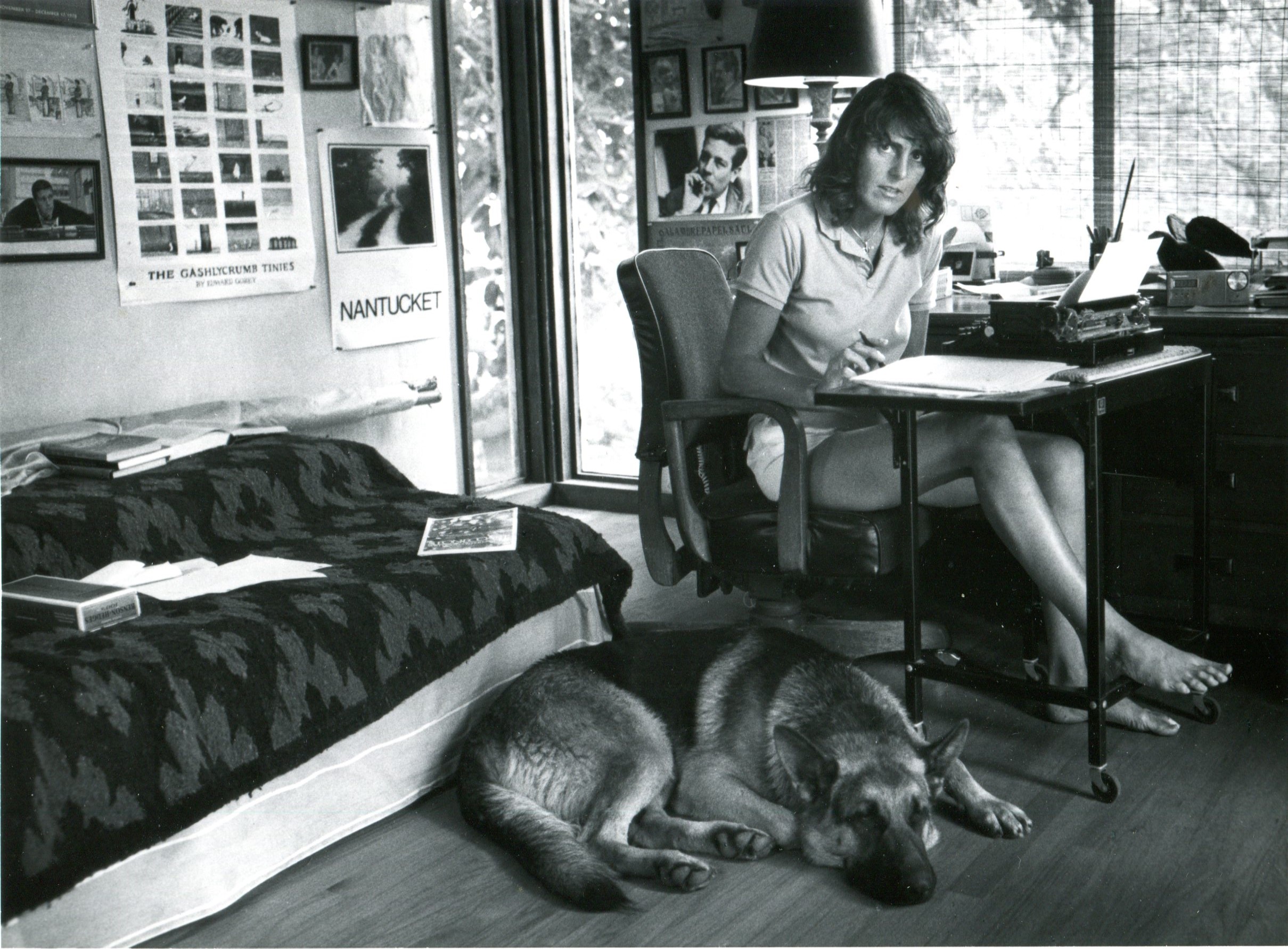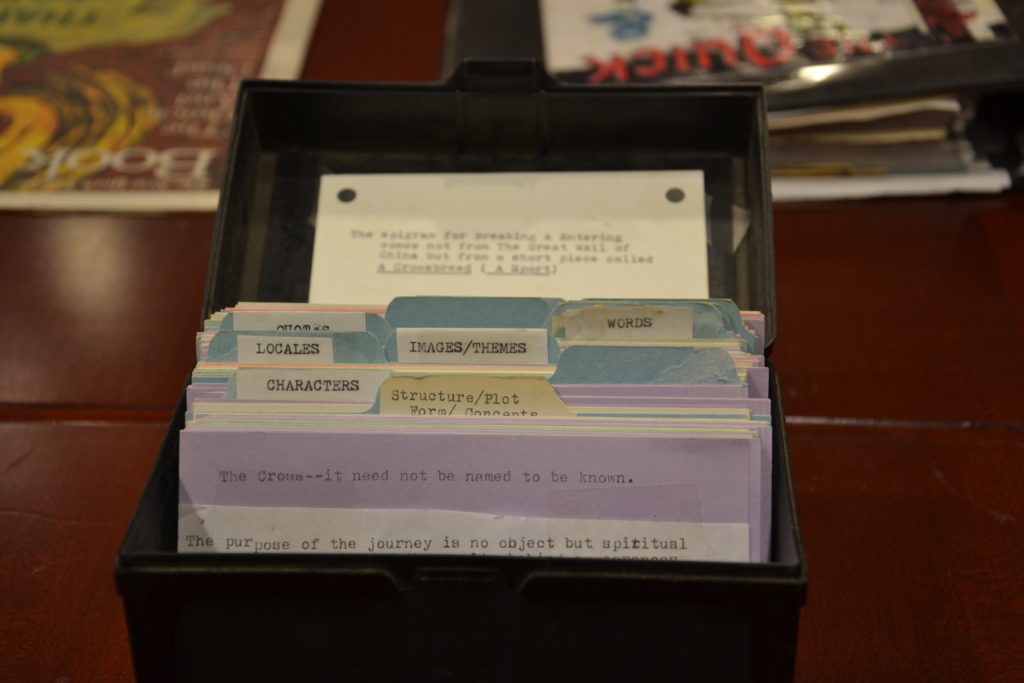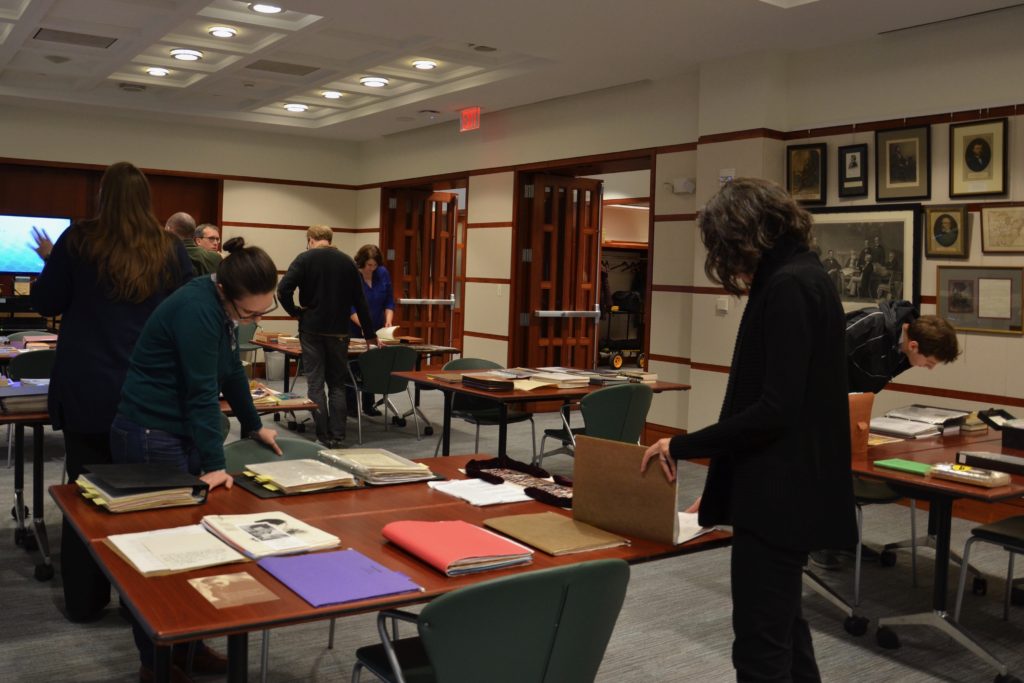
Washington University Libraries Acquire Papers of Author Joy Williams

The Washington University Libraries, with support from the Washington University Department of English, recently acquired the Joy Williams Papers, a collection of drafts, journals, correspondence, and other materials related to the life and work of celebrated author Joy Williams.
An acclaimed fiction writer and essayist, Williams is the author of four novels, five short-story collections and one essay collection. Her short stories are widely anthologized. Her first novel, State of Grace (1973), was nominated for the National Book Award. Her 2000 novel, The Quick and the Dead, was nominated for the Pulitzer Prize, and her 2001 essay collection, Ill Nature: Rants and Reflections on Humanity and Other Animals, was a finalist for the National Book Critics Circle Award.
From the beginning, Williams was recognized by literary giants like Harold Brodkey, James Salter, William Gass, and Raymond Carver as a major writer. In 1973, Truman Capote called State of Grace “the best novel of the year.” Williams’s first stories were published in The New Yorker, Esquire, and the Paris Review, and during the late ’70s, George Plimpton said that Williams “towers over most contemporary fiction.” In 2000, Plimpton declared that she was “without question one of the masters of the contemporary short story.”

In 2015, Knopf published The Visiting Privilege: New and Collected Stories, and it served as the occasion for Williams’s contemporaries to express their admiration. Don DeLillo wrote, “Joy Williams is an essential American voice, giving us a new way to hear the living language of our time, the off-notes, the devious humor—as the strange, fierce, vigorous undercurrent we sometimes mistake for ordinary.”
The book also drew comparably emphatic praise from a younger generation of writers raised on her work. Ben Marcus, reviewing for The New York Times, wrote that Williams inspires “the sort of helpless laughter that erupts when a profound moral project is conducted with such blinding literary craft, when the dilemmas most difficult to accept are turned into dramatic action. See Samuel Beckett.” Karen Russell said of Williams, “She’s a visionary, and she resizes people against a cosmic backdrop.”

Williams is the recipient of a Guggenheim fellowship, a National Endowment for the Arts grant, and the Harold and Mildred Strauss Living Award from the Academy of Arts and Letters. This year, The Paris Review will present her with the Hadada Award for lifetime achievement. The annual award is given to an eminent member of the writing community who has made a notable and lasting contribution to literature. Previous recipients include Joan Didion, Norman Mailer, and William Styron. Williams has taught creative writing at institutions across the country, including the University of Iowa and the University of Wyoming, where she is Visiting Eminent Writer in Residence. She has a long history as a visiting Hurst Professor at Washington University.
The materials in the Joy Williams Papers span her entire life, and the purchase includes future papers. The acquisition of the papers represents a significant addition to the University Libraries’ Modern Literature Collection, which is recognized as one of the world’s leading resources for the study of postmodern fiction and poetry. The collection is home to the papers of William Gaddis, Mary Jo Bang and James Merrill, among many other Anglo-American poets and fiction writers.
“I’m so proud to be part of the library’s stellar collection,” Williams said. “It’s Parnassus in there!”
The Joy Williams Papers are scheduled for processing and cataloging in early 2018 and will be available for research later in the year.
For more information, contact Joel Minor, curator of Modern Literature Collection/Manuscripts, at (314) 935-5413 or jminor@wustl.edu